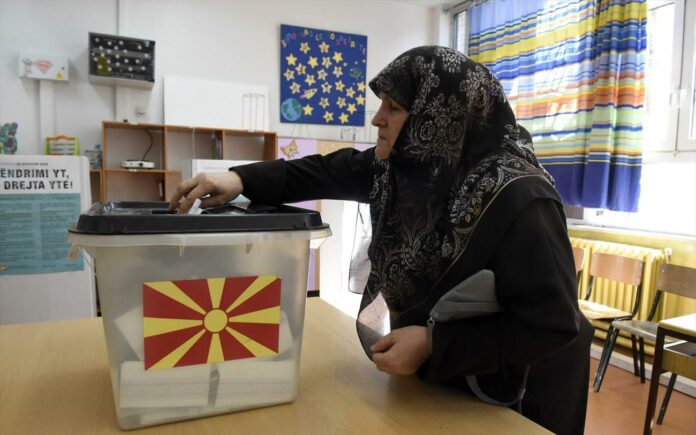Greece’s foreign ministry reacted cautiously on Sunday to the result of a same-day referendum in the former Yugoslav Republic of Macedonia (fYRoM) over a provisional agreement to resolve the long-standing “name issue”, referring to a “contradictory” result.
Nevertheless, Athens said the referendum itself was a “consultative” process and not part of the commitments emanating from the July 2018 “Prespa Agreement”. Ratification of the agreement would replace the clunky “Former Yugoslav Republic of Macedonia”, that Greece and international organizations use, with “Republic of North Macedonia”, adding a “north” to the constitutional “Republic of Macedonia” that Skopje insists on.
The foreign ministry statement also emphasized that Athens “remains committed to Prespa agreement”.
The low turnout, nearing 35 percent, undoubtedly disappointed the mostly leftist Greek coalition government, which has invested much of its remaining political “capital” on achieving a major foreign policy success in the face of shrill domestic opposition and floundering voter approval ratings. A “yes” vote exceeding 90 percent of the tally in the neighboring country was of little consolation.
“A major portion of society in the neighboring country backed the agreement. However, a significant portion viewed it with skepticism. Greece respects the decisions of the citizens of the former Yugoslav Republic of Macedonia,” the ministry announcement in Athens read, while adding, in a more internationalist tone:
“… a climate of nationalism and suspicion, daily fake news and unbridled fanaticism do not allow, unfortunately, for a sober assessment of the major benefits of this agreement, and impede the necessary mutual understanding of peoples, and the development of the cooperation.”
Nevertheless, not everyone in the government was apparently dissatisfied by the result, with one of the two partners in the current “strange bedfellows” coalition breathing a sigh of relief on Sunday evening.
The head of the small right-wing party propping up the mostly leftist government, Defense Minister Panos Kammenos, took to Twitter to opine that “with this turn out, based on Article 73, 74 of their (fYRoM) constitution, it is invalid, and 68 percent of citizens (in fYRoM) canceled the agreement.”
Kammenos, who founded and leads the Independent Greeks (AN.EL) party, has been in the unenviable position of trying to maintain his personal and his nationalist-tinged party’s standing opposition to the any name containing the word “Macedonia”, while at the same time remaining in his Cabinet seat and supporting the government of radical leftist Alexis Tsipras in every Parliament vote.
The controversial minister, a long-time cadre and MP with center-right New Democracy (ND) party since his teenage years who was expelled from the latter in 2012, avoided reference to leftist SYRIZA and his partner Tsipras’ overwhelming support for the deal, and instead attacked poll-leading center-right ND rival Kyriakos Mitsotakis.
“Kyriakos (using only the first name) must explain why he wanted to stop Greeks’ prosperity and the government,” alluding to opposition calls for the current coalition to call snap elections.
Based on most opinion poll results, the AN.EL party will struggle to again top 3 percent of valid votes in a general election necessary to return to parliament. Kammenos has repeatedly said he’ll vote against the Prespa Agreement when it arrives in Greece’s Parliament, although many political analysts in Athens point to delay tactics in order keep the current coalition together, at least until the first half of the year. A regular general election must come before September 2019.
Kammenos and his remaining MPs have also not clarified if they will continue to support the Tsipras government even if the agreement is passed with votes by MPs of other parties.














